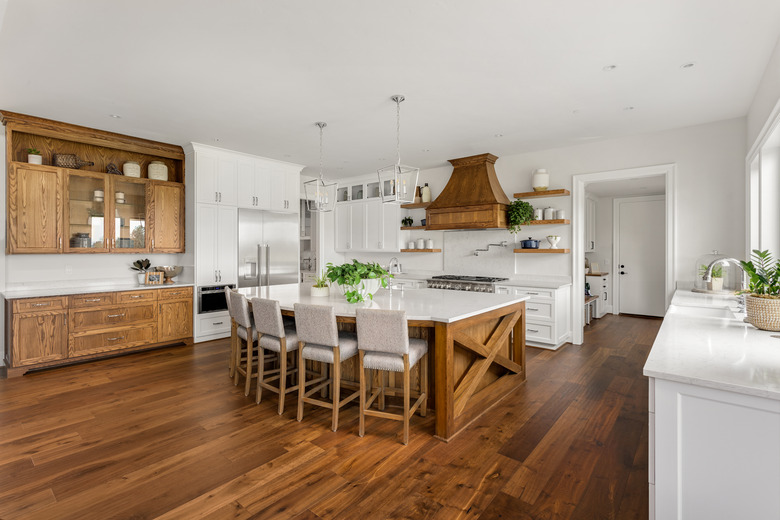What Are The Benefits Of A Refrigerator?
In the 1920s, you could buy a Model T Ford for just $260, but to buy the first-ever Frigidaire home refrigerator would cost you around $750 — that's around $9,700 today. But the benefits of refrigeration were a game-changer for a family's ability to keep food safe for consumption for a longer period. So much so, in fact, that not only do 99.9 percent of American households have fridges today, but 23 percent of households have two refrigerators or more.
Why We Love Our Fridges
Why We Love Our Fridges
The importance of refrigerators may be taken for granted in North America, but elsewhere in the world, there are still those who've never had the privilege of cracking a cool can of soda from their kitchen fridge. Only 75 percent of the world's homes have fridges today. In 2015, BBC ran a story in which an Indian man named Santosh Chowdhury became the first-ever owner of a fridge in his village of 200, and the implications of buying one were life-changing. Now his wife could make extra food and have leftovers, reducing the amount of time spent on household chores for people who worked six days a week.
Visit places like Bangkok and you'll see couriers delivering blocks of ice to street hawkers all day long for preservation of their foods. The practice of ice delivery on a daily basis was once the norm for many households a century ago.
But heat can deteriorate far more than just a slab of beef. The uses of a refrigerator go far beyond just keeping the yogurt chilled and butter firm. It can be critical to keeping life-saving prescriptions cold in places like Chowdhury's village or even down on the bayou in Louisiana. Look into people's fridges and you'll often find batteries, since staying cold makes batteries stay packed with power for longer.
Benefits of Refrigerators
Benefits of Refrigerators
Any old refrigerator can make a world of difference in your diet if it simply keeps food in the healthy 32- to 40-degree Fahrenheit range. It means being able to safely consume meat beyond a few hours from purchase. It allows for keeping fresh food fresh or even enjoying leftovers. With longer safe-consumption periods, it's better for your home's budget as well as the planet's health.
The longer food lasts, the more chances it will be consumed. Good news, when food waste is one of the worst offenders for greenhouse gases, since the methane produced when food decomposes is 28 times more impactful on the climate than carbon dioxide is.
Unfortunately, the long shelf life can also encourage people to buy more than they need or can consume.
Customizing Your Refrigerator
Customizing Your Refrigerator
The reason food gets wasted sometimes isn't because people are always irresponsible. Sometimes it comes down to organizational challenges. They open the door and there's all this stuff and it can be overwhelming for some. Finding a fridge that's best suited to your needs is easier than ever, so make sure the configuration works for how you cook and what you eat.
Smart door shelving might be necessary if you're decked out with every sauce from Peri-Peri to mayo. Maybe you're a wine fanatic and a wine rack shelf will keep you sane. Drawer-style freezers can be terrific for families that need to stock up or they have kids needing to access frozen snacks after school.
Consider what style doors you like best, because it really changes the function of your fridge. Are you into raw food and fresh veggies? The crispers should be your biggest consideration — are they large enough, and how easily do they open? On it goes.
Keeping Cool
Keeping Cool
There are more choices than ever before with fridges, and that's possibly the best benefit ever in refrigeration. Today, it's possible to not just keep your food cold, but to do so in a way that makes sense to how you cook, the way you like to organize things, how you live and even just your aesthetic.
